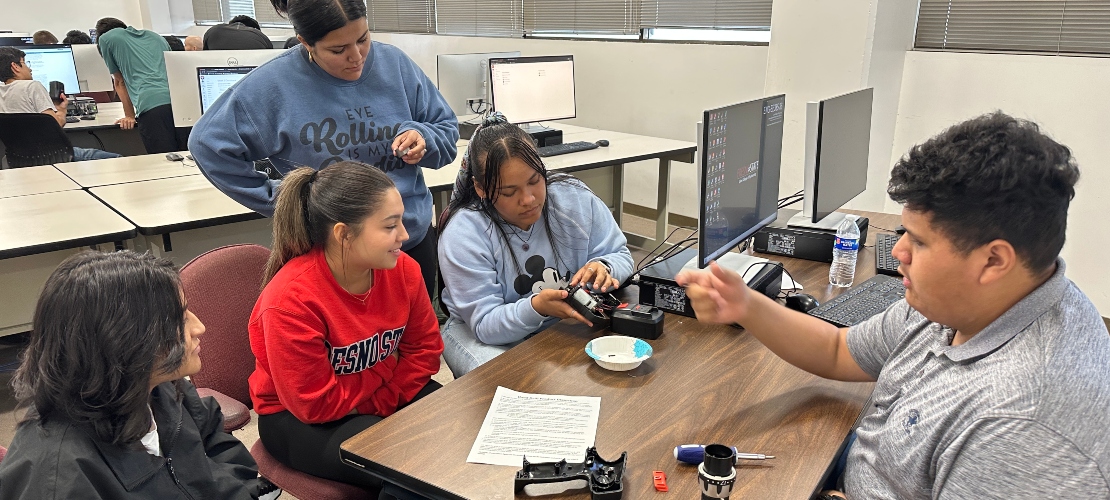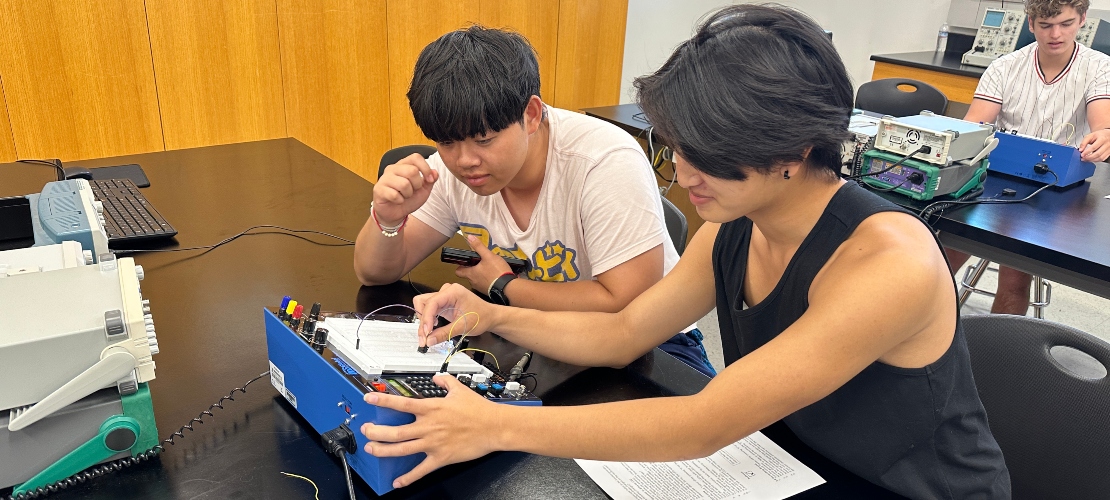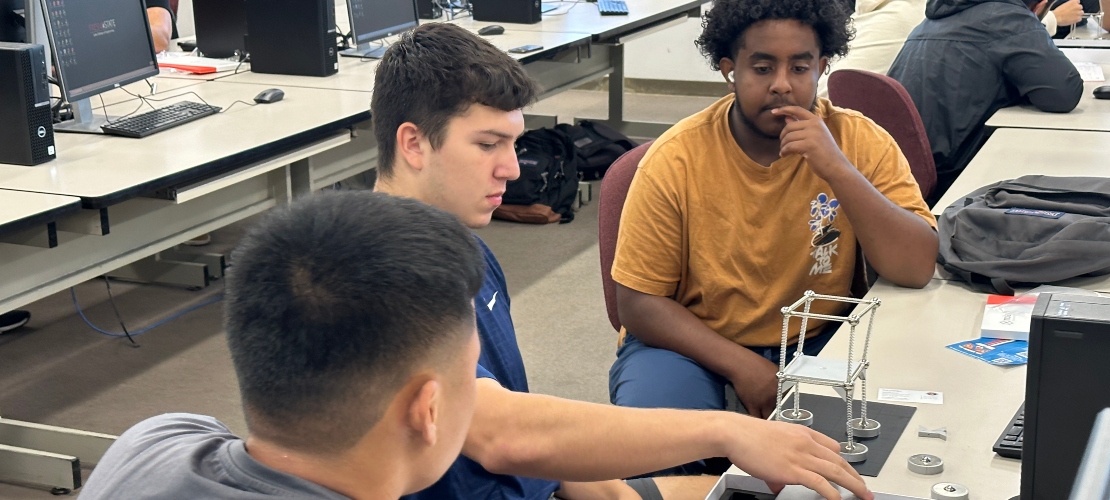Lyles College of Engineering
Pre-engineering
Fresno State’s Pre-Engineering program offers numerous benefits, including skill development through hands-on projects and coursework, exploration of various engineering disciplines, and preparation for upper-division coursework. Students also gain access to valuable networking opportunities, develop problem-solving skills, and receive mentorship from faculty or industry professionals. These experiences build confidence and lay a strong foundation for success in engineering careers.
What Can You Expect From Pre-Engineering?
By taking math, science, and engineering courses, you will build a solid foundation of knowledge and skills essential for engineering. With the support of a dedicated academic advisor, you will receive guidance to help you navigate coursework and meet admission requirements. Through this program, you will gain the confidence and preparation needed to excel in your engineering studies.
Pre-Engineering Curriculum:
First year students, who are ready to enroll in Calc 1, will follow the Pre-engineering curriculum as shown. LCOE Advising Center will work with Pre-engneering students who are not yet ready to begin Calc 1 or who have already completed some of the required Pre-engineering courses to adjust these course schedules as necessary.
| Course | Title | Credits |
|---|---|---|
| ENGR 1 | Intro to Eng | 1 |
| (B4)MATH 75 | Calc 1 | 4 |
| (A2) ENGL 10 | Written Comm | 3 |
| (B2) BIOL 10 | Life Science | 3 |
|
(A1) COMM 3,7,8 |
Oral Comm | 3 |
|
|
TOTAL | 14 |
| Course | Title | Credits |
|---|---|---|
| CE 2/ME 2/ECE 1 | Intro to CE/ME/ECE | 1 |
| MATH 76 | Calc 2 | 4 |
| PHYS 4A | Mech and Wave | 3 |
| PHYS 4AL | Mech/Wave Lab | 1 |
| (D1) HIST 11,12 | US History | 3 |
| PLSI 2 | FED, STE & LCL GOV | 3 |
| TOTAL | 15 |
Engineering courses taken as a part of the Pre-engineering program are specifically designed to prepare students with fundamental skills that will support their success in future engineering coursework.
Changing major into Pre-Engineering for Current Fresno State Students:
Students who were admitted to Fresno State as first-time freshmen may change their major into Pre-Engineering within their first two years at Fresno State provided they have not already completed MATH 76 and PHYS 4A.
Students interested in changing major into Pre-Engineering should schedule an appointment with the LCOE Advising Center to confirm whether they qualify and to complete the change of major process.
Requirements to Transition from Pre-Engineering to Civil, Computer, Electrical, or Mechanical Engineering Major:
Pre-Engineering students who have met the following criteria are eligible to change their major to their chosen engineering major:
- Completed the 10 required Pre-Engineering courses with C or better within 2 years of first attending Fresno State
- Maintained a 2.25 overall GPA


